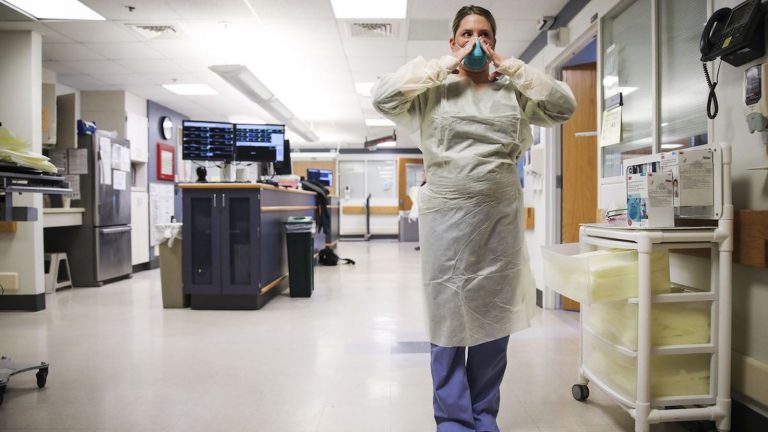We’re all trying to flatten the curve, because we understand that overwhelmed hospitals cannot treat critical COVID-19 patients effectively, putting more lives at risk. Nobody wants that. But are hospital resources really being used as efficiently as they could be? Are other patients who are facing life-threatening conditions being pushed aside? And, who should decide how doctors and hospitals allocate critical health services?
In the state of New York, we’ve all been told about war-like conditions and overwhelmed critical care providers. But hospitals in Syracuse, New York are reporting hundreds of empty beds even as those in Manhattan are overwhelmed. And although it’s easy to find photos of empty hospitals on Twitter, the mainstream media seems solely focused on the worst-cases. Any reporting of empty hospital beds is dismissed as an irresponsible “conspiracy theory.”
But what’s really going on here? The fact is, both narratives are true at the same time. Some hospitals are overwhelmed, as others sit empty. Why? Because well-meaning but dangerously misguided one-size-fits-all directives are creating huge disruptions in the provision of needed care.
To prepare for the potential crush of coronavirus cases, some governors across the country have ordered hospitals to put a stop to all elective procedures. Is that smart policy? What medical procedures are elective? Does pushing off a so-deemed “elective” procedure put patients at greater risk of becoming critical next week? How would a governor, or any politician, know such things?
In West Virginia, the Charleston Area Medical Center has empty beds, and many patients are being forced to forgo needed care. How are both of these things true at the same time? The President of the West Virginia Hospital Association explains: “The Surgeon General said cancel elective surgeries and you cancel electives, you cancel other related ancillary services and the revenue stream dries up.” As an unintended consequence of a well-meaning directive from Washington, DC, the resources needed to maintain hospital capacity for emergencies are disappearing in West Virginia and other states.
In fairness, there is a kernel of truth in these sweeping directives: You don’t want healthy people unnecessarily visiting hospitals for vanity procedures, where the chance of catching, or spreading, infection is very real.
But is your chemotherapy treatment for cancer really elective? In Georgia, the Governor has ordered cancer patients to stay home and avoid their regular treatments, for fear that they might contract the virus with a compromised immune system.
This one is personal for me. I successfully beat stage four cancer in 2002, so I understand the risks associated with exposure to all sorts of things while your body is immune suppressed. Life-saving treatments like chemotherapy and radiation leave patients particularly exposed. But cancer can still kill you even if a virus doesn’t, and some people need regular treatments to survive. Forgoing treatments will make beatable cancers less curable later, maybe deadly. I, for one, would not be alive today had I been denied the treatments that saved my life.
So this is a tough call. But the question, again, is who is best situated, who has the best knowledge, who can make the safest call for each patient facing specific circumstances and conditions?
Our medical system is a complicated ecosystem. It consists of millions of interacting parts, economies, technologies, products and services, and, of course, millions of people helping people in need. How can we ensure that the best decisions are made? First we have to acknowledge that there is no simple cookie-cutter answer, and no single silver bullet solution that can be dictated from the top-down.
These are complex questions, requiring individual answers based on the best local knowledge—patients making choices in consultation with their doctors, nurses and other health care professionals.
In these times of extraordinary stress on health care services, the system will work best when we allow people with the best information the freedom to make decisions at the local level, and the freedom to respond to changing conditions on the ground. Directives from on high, however well-meaning, might very well get people killed.














Add comment